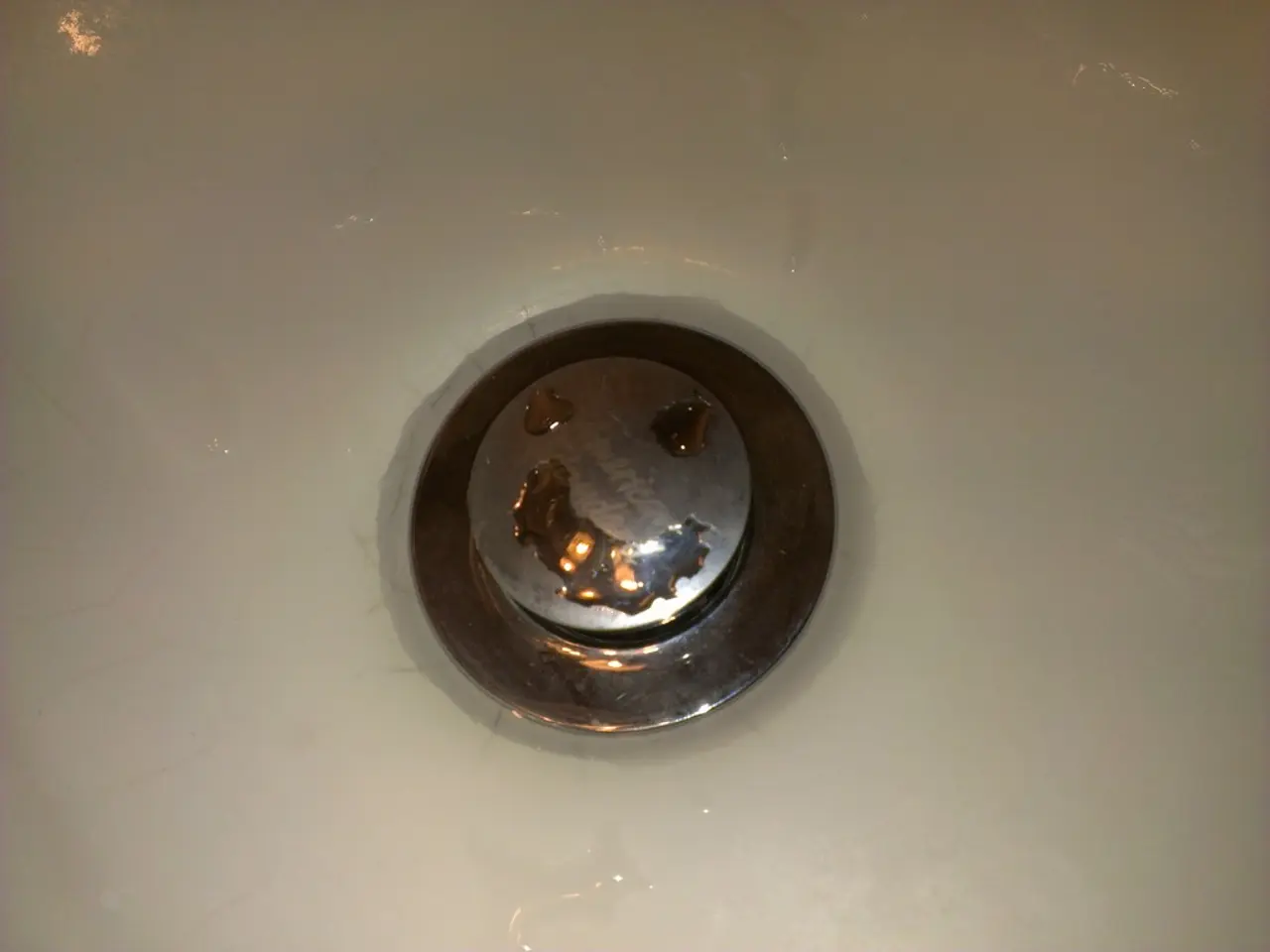Improper Use of Sinks: A Surprising Reality Explored
Misusing Sinks Can Lead to Plumbing and Health Issues
The kitchen sink, designed for handling specific types of waste, plays a crucial role in maintaining a clean and safe home environment. However, misusing sinks for purposes other than their intended use can lead to a host of problems, ranging from plumbing issues to health risks.
Pouring large quantities of food waste, grease, or coffee grounds down the sink can lead to clogged drains. These blockages can cause slower drainage, backups, foul odors, and in extreme cases, sewage overflow. The hardening of cooking oil, grease, or fat inside pipes can result in blockages that may lead to burst pipes or sewage backups [1]. Using chemical drain cleaners to fix clogs can corrode metal or plastic pipes, worsening damage and potentially turning small clogs into pipe failures [1]. Disposal of non-biodegradable items like food scraps, coffee grounds, paint, garden waste, or wet wipes can similarly cause blockages needing professional intervention [3].
Using the kitchen sink for personal hygiene purposes, such as washing hands or brushing teeth, increases the risk of contamination. This can lead to cross-contamination and the spread of harmful pathogens, increasing the risk of foodborne illnesses and other health problems [2]. The residue from food particles and other substances can contaminate the sink, facilitating the growth of bacteria [4].
In the bathroom, disposing of hazardous substances or inappropriate waste can have serious consequences. Cosmetics, medications, or cleaning products should never be flushed down the bathroom sink as they can enter the water supply, contaminate the environment, and even harm aquatic life. It is essential to dispose of these items properly to protect both human health and the environment.
Water damage can occur when non-water substances like oil, paint, or chemicals are poured down the sink, leading to clogged pipes and potential leaks. Over time, the accumulation of these substances can cause severe damage to the plumbing system, resulting in leaks, burst pipes, and costly repairs.
To prevent these issues, it is important to use sinks correctly—only for their intended purpose of disposing of water and safe liquid wastes. Proper disposal habits such as cooling and discarding grease in the trash, using sink strainers to catch debris, and avoiding flushing non-soluble or hazardous materials can prevent clogs and prolong pipe longevity [1][3]. Avoiding chemical drain cleaners preserves pipe integrity and reduces long-term repair costs [1]. Timely maintenance and addressing slow drains early can prevent plumbing disasters and the associated health risks from mold and pests fostered by standing water [5].
In summary, correct use of sinks prevents damage, avoids costly repairs, and mitigates health risks by maintaining proper flow in plumbing systems and preventing harmful blockages and corrosion [1][3][5]. By adhering to these simple guidelines, homeowners can ensure their sinks remain functional and hygienic, safeguarding their health and wallets in the process.
[1] Plumbing Manufacturers International. (2021). Kitchen Sink Maintenance Tips. Retrieved from https://www.pmihomefacts.org/content/kitchen-sink-maintenance-tips
[2] Centers for Disease Control and Prevention. (2020). Cross-Contamination. Retrieved from https://www.cdc.gov/foodsafety/food-handlers/cross-contamination.html
[3] American Plumber Council. (2021). Common Causes of Clogged Drains. Retrieved from https://www.americanplumbercouncil.org/common-causes-of-clogged-drains/
[4] Environmental Protection Agency. (2021). Indoor Air Quality. Retrieved from https://www.epa.gov/indoor-air-quality-iaq
[5] National Association of Home Builders. (2021). Plumbing Maintenance Tips. Retrieved from https://www.nahb.org/en/resources/for-builders/green/plumbing-maintenance-tips.aspx
- Maintaining the kitchen sink primarily for its intended purpose of water and safe liquid waste can help promote a healthy lifestyle by reducing the risk of foodborne illnesses and contamination, as well as ensuring a clean and safe home and garden environment.
- In the realm of home-and-garden upkeep, proper care and use of the sink extend beyond plumbing concerns to include health-and-wellness aspects, such as preventing cross-contamination and the spread of harmful pathogens, and fostering a fitness-and-exercise friendly lifestyle through hygienic practices.




